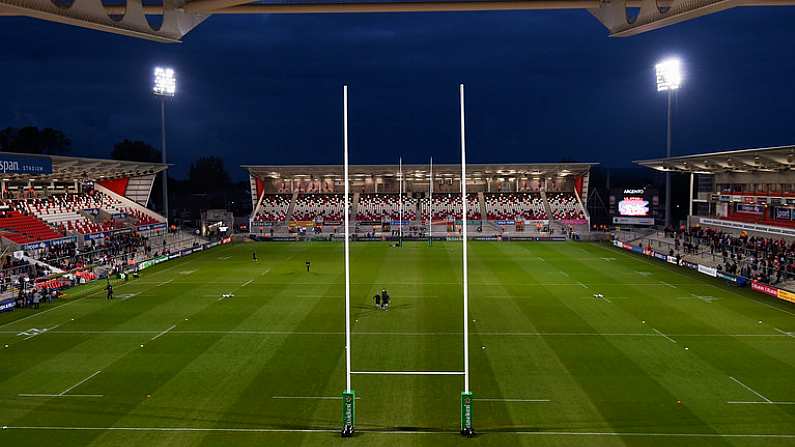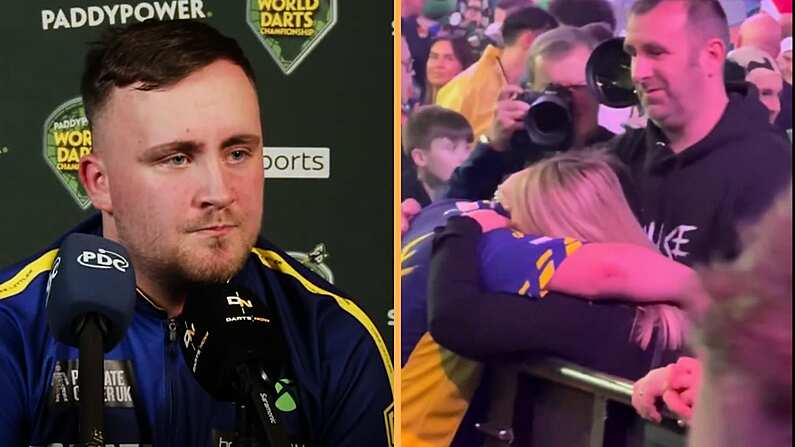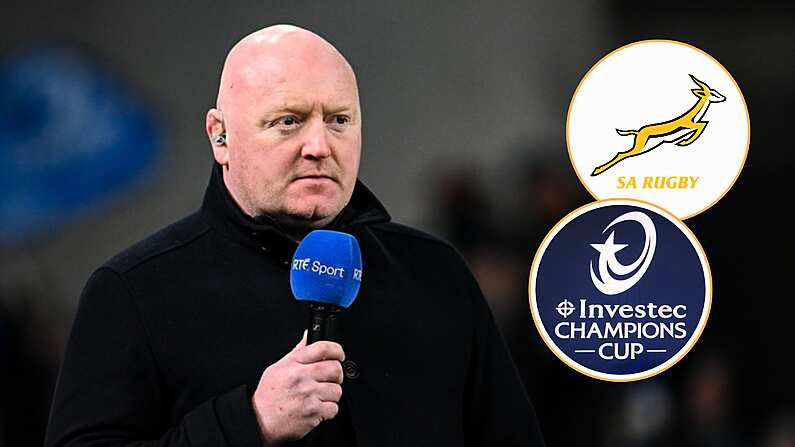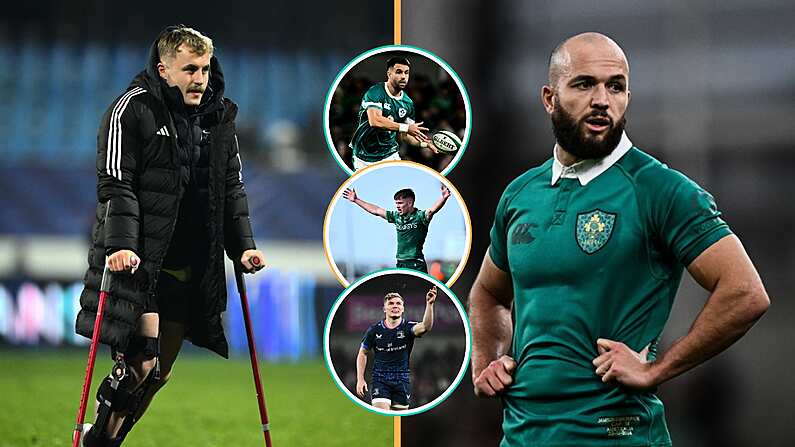For the second week in a row, Ulster Rugby have decided to exclude all non-sports journalists from their next pre-match press conference.
In defence of this week's ban on news journalists, the club cited their matchweek obligation to deliver interview opportunities with a coach and players to preview the forthcoming game, and claimed that the "conduct of news journalists at a recent press conference negatively impacted our ability to a meaningful event that focused on rugby content".
They explained the decision in a statement issued to a number of media outlets.
Ulster Rugby is contractually obliged by tournament organisers to deliver a match-week press conference that provides sports journalists with an opportunity to interview a coach and players regarding that week's fixture.
As previously stated, the conduct of news journalists at a recent press conference negatively impacted our ability to deliver a meaningful event that focused on rugby content.
All media outlets are welcome to send staff who would regularly cover our press conferences and matches, as they have done in the past.
News journalists interviewed Ulster Rugby's Chief Executive following the outcome of the post-trial review, in order to allow the coaches and players to focus on on-pitch matters.
Ulster Rugby said "they were unhappy with the tone and line of questioning" when asked by Balls to elaborate on "the conduct of news journalists" line from the initial statement. When asked how long this ban will last, Ulster said that it is being reviewed on an "ongoing basis".
Ulster and Irish Rugby's decision to revoke the contracts of Paddy Jackson and Stuart Olding on April 14th has intensified the news media focus on the former. Jackson and Olding were sacked following an internal review by both organisations that was launched after both players were acquitted of all charges levelled against them at Belfast Crown Court.
Séamus Dooley, the Assistant General Secretary of the National Union of Journalists, told Balls that his organisation are "deeply concerned" at Ulster's decision, calling it "an unacceptable attempt to control media coverage and reflects a wider failure to understand the level of public interest in the story".
The NUJ is deeply concerned at the actions of Ulster Rugby in refusing media organisations accreditation for news reporters for recent press conferences.
We recognise that there are times when media briefings are of greater interest to sports reporters. It would be possible to give priority to sports journalists while facilitating requests from media organisations to accredit news reporters.
Last week’s statement on the departure of two players was both a news and sports story yet only selected sports journalists were allowed to attend the event.
This is an unacceptable attempt to control media coverage and reflects a wider failure to understand the level of public interest in the story.
No sporting organisation has a right to shape the news or to seek to divide journalists. Sports journalists fully understand why this issue is not just a sports story.
As for complaints by Ulster Rugby about the behaviour of journalists at a press conference the officers might well reflect on the irony of their position: it was not badly behaved journalists who were responsible for the difficulties Ulster Rugby has found itself in.
The reasoning for this week's decision is slightly different to the justification for last week's ban.
We reported on that ban and were told by Ulster Rugby that the decision was made in consultation with sports journalists who felt that they were not getting enough content to fill their pieces in the sports pages previewing the weekend's game.
Subsequent to this being published, however, the sports journalists in question issued a statement saying that there was no formal consultation on the matter, and said they could not stand by such a ban. "We welcome the acknowledgment that no regular attendees of press conferences undertook in a formal consultation process that resulted in fellow journalists being banned from a Kingspan Stadium press conference. It was not a stance we would, or could, support".
There have been other issues between Ulster Rugby and non-sports journalists in the last couple of weeks. Amanda Ferguson, a freelance journalist working as a correspondent in Northern Ireland, was denied accreditation to Ulster's game against Ospreys at Ravenhill on April 13th. She was told by Ulster Rugby that priority was given to sports journalists, and a follow-up request for a seat in the stand close to the media facilities was denied.
Ulster Rugby told us last week that they felt a series of press interviews given by CEO Shane Logan on Monday last (April 16th), amounted to sufficient coverage of the sacking of Paddy Jackson and Stuart Olding and the suspension of Craig Gilroy. This week's statement is consistent with that.
Mr. Logan gave television interviews to BBC and UTV, and also spoke to a couple of print outlets.
There has, however, been some criticism of how these press interviews with Shane Logan were organised. A number of print outlets were given very short notice that Mr. Logan was available for interview.
Balls knows of a sports journalist at one outlet who was contacted about an interview opportunity with Mr Logan at that exact moment, despite the fact his news department, and not this journalist, had requested the interview. By the time the sports journalist saw his missed call a short time later, he was told Mr. Logan was no longer available.
Some Ulster fans called on Mr. Logan to resign during what was also a turbulent season on the field. Director of Rugby Les Kiss left the club in January after a poor run of results, with interim coach Jono Gibbes recently electing not to stay on for next season. Having been unable to attend a meeting with Operations Director Bryn Cunningham and season ticket holders on March 8th, Mr. Logan confirmed his intention not to resign in a wide-ranging interview with Ulster's in-house YouTube channel.
There was some criticism of the timing of the release of this video: it was uploaded at 5.02pm on Saturday, March 10th, after Ireland's Six Nations win over Scotland and during the clash between England and France that would decide whether Ireland won the tournament ahead of the final weekend.
At last weekend's game against Glasgow at Ravenhill, stewards removed banners from the crowd calling on Mr. Logan to step down. The details of those protests have been collated in a Twitter thread by journalist David Hunter.
Massive night for Ulster Rugby on the pitch, but off it more discontent from loyal fans over recent events. Here, a Stewart removes signs from fans in the stands criticising Chief Executive, Shane Logan. pic.twitter.com/5jMd4FBYct
— David Hunter (@davidhunter7) April 21, 2018
See Also: Explaining The Rift Between Irish Rugby And The Media










